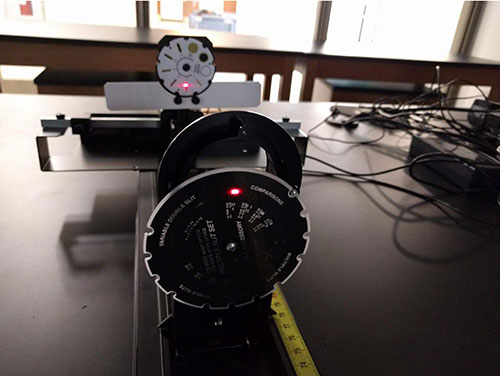Why minor in Physics?

Physics is the study of the workings of the natural world and is ultimately the basis for all other fields of science. From the tiniest scales of subatomic quanta to the largest scales of galaxy clusters, physics tries to understand how all physical phenomena behave as they follow the laws of nature.
LaGrange College's Minor in Physics will help prepare students for a career in industry, data analysis, engineering, biomechanics, medicine, and virtually any other field. Physics is all about solving problems, often in a creative way, and this skill is valuable for any vocation. Studying physics trains students to think creatively and approach problems from different perspectives, and it often instills a sense of appreciation in understanding how exquisitely the universe works.
Course Requirements
- Calculus I (MATH 2221)
- Calculus II (MATH 2222)
- Calculus III (MATH 2223)
- General Physics with lab (PHYS 2121, PHYS 2122)
- Introduction to Modern Physics (PHYS 3201)
- Introduction to Quantum Mechanics (PHYS 3302, may be substituted with CHEM 3302)
- Classical Mechanics (PHYS 3401)
- Thermal Physics (PHYS 3411)
- Electromagnetic Theory (PHYS 3501)
What do physics classes have to offer?
The classes are not designed in the traditional lecture style. They are focused on active learning and student involvement. Physics problems can be challenging, so plenty of practice is provided in class as students collaborate to find solutions and learn from their mistakes.
In the physics lab, students work together to figure out the best way to make accurate measurements in interesting experiments that make the concepts learned in class come to life. Students have the opportunity to come up with their own method of carrying out an experiment of their own design. Past lab activities have involved making a matchbox rocket, designing an electric motor that runs as fast as possible, and studying the resonance of a vibrating string with a strobe light.
There is also an opportunity to do undergraduate research as a part of Introduction to Modern Physics. Along with labs that explore the nature of relativity and the quantum nature of light and atoms, a sizable portion of lab time is devoted to a research project guided by Professor Kevin Ludwick, whose research specialty is cosmology. Undergraduate research looks great on a résumé, and the opportunity to give a research presentation and possibly to publish the results in a scientific journal is invaluable and rewarding.

